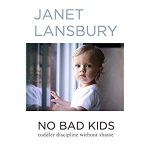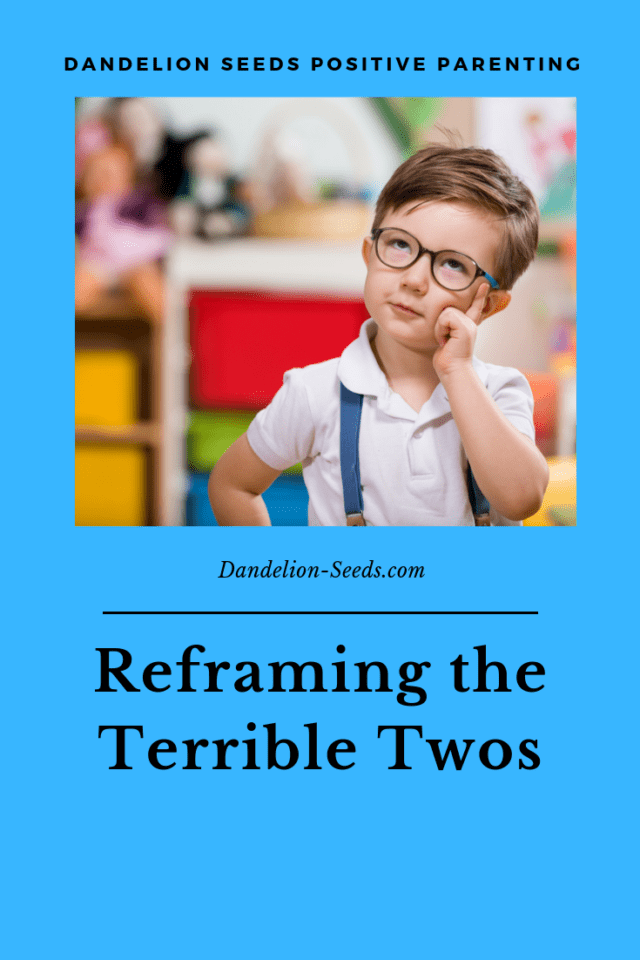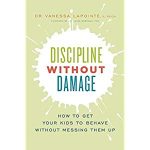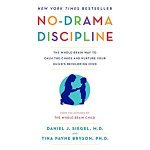
Sign in
Don't have an account with us? Sign up using the form below and get some free bonuses!

I recall one afternoon shortly after my own daughter turned two. She looked at me and announced ever so confidently, "Park. No pants." Hold the phone---when did she learn to say "park?" And was she actually

requesting to go there without any pants on? (She was. We went; her, without pants, and me, fully clothed. It was warm. No one batted an eye.) I realized at that moment that the baby I'd just figured out, suddenly wasn't that person anymore. She was evolving before my eyes.
So, true. We do need to adjust our parenting at this milestone age.
Whereas before we had a child who was likely happy to be carried much of the time, we now have someone who wants to walk. (And by walk, I mean sprint precariously forward, and usually with turbo speed when stairs or vehicles are present.) Suddenly, we need to sprint after a fully functioning human body, and that's new to us.
Whereas before we could talk to our little person and he'd smile or babble in response, we now have someone who's forging his own opinions about things. Suddenly, we need to navigate a new opinion in the house, and that's new to us.

The human brain will never again grow as fast as it's growing right now in these first few years of childhood. As much as it is for us---the adults---to process, it's even more overwhelming for the little people to whom this "growing up" thing is happening. Sometimes, it manifests in what adults perceive as suboptimal behavior, such as tantrums.
as tantrums.
One important thing to note is that throwing a tantrum isn't about disobedience; it's a little one's way of saying, "This is pretty overwhelming right now! Can you please support me?" Unfortunately, two year olds often lack the verbal skills, not to mention the development in the prefrontal cortex (the part of the brain that controls impulses) to help them do anything other than exactly what they're doing. Some quick brain science: the prefrontal cortex doesn't fully develop until around age 25.
I realize that when a child throws a temper tantrum at the grocery store or on the playground, it's inconvenient. Sometimes, it's downright embarrassing. If situations like that irk you, please know you're not alone. Remain calm; practice deep breathing.
If I had a single piece of advice around your child's big feelings, I'd suggest that you let go completely about what other people think and simply connect to your child. This connection is going to get you through age two, and all of the other years that follow. Now is a great time to practice.
And here's the crazy thing---most "terrible twos" spend very little time upset. In my personal and professional experience, two year olds are incredibly delightful most of the time. The amount of time they spend being curious, giggly, and affectionate far outweighs anything else.

Surprise people with your ability to see the joy at your child's newfound mobility and freedom, because it's new to him. We can learn to run faster.
Surprise people with your gentle support of your child's awesome new ways to show you "This is who I am and what I like," because advocating for herself is new to her. (And how freeing it must be to clearly know your boundaries like little kids do. What a gift they have this way!) We can learn to help our child navigate communication.
Surprise people with your flexibility around forced sleep times; we all sleep when we're tired enough, and this incredible desire to play with you every waking hour is new to your child, too. We can learn to adapt.
Part of respectful parenting means we learn to work with the child in front of us, even when it requires that we, ourselves, grow in our abilities. Additionally, it means we're intentional about the ways we describe our children to others. Our words matter and our kids are listening. Do we like them? Do we want to foster a positive connection based on mutual trust? As parents, we're called not only to be kind to them, but also to reflect that kindness in the words we use about them.
When someone mentions the "terrible twos" to me, I often reply with a shrug and respond, "Huh. I've always called them the 'terrific twos.'" 'Nuff said. One person at a time, we can change perception---because after all, our perception is our reality, isn't it?
Your two-year-old child is wonderfully fine, and more often than not, perfectly terrific.
Cleaning with kids isn't easy---sometimes it seems like all they want to do is play! One day, though, everything changed in how I viewed the process. Suddenly, life got a whole lot easier.
I was in the kitchen making homemade almond butter (yum!). My five-year-old walked in with her cup of water and announced, "Mommy, let's pretend you're working in a bakery!" That sounds about right, considering how much time I spend cooking.
She added, "I've brought my cup of water for any of your customers who want it!"
As she started towards me, water still in hand, her steps turned into bunny hops. (I love how kids do that.) However, as she quickly learned, hopping with an open cup of water quickly makes for a wet bunny-child and slippery floor.
I reminded her that we keep rags in the drawer near where she was standing. Usually, reminding her where the cleaning supplies live (or where things go) works much better than a direct request to clean.
Example of what doesn't fly in our house: "Please put away your shoes."
What usually works better: "Shoes live in the utility room."
This time, however, when I reminded her where we keep the rags, she responded with a happy and factual tone, "That's not my job." That's right--she just had me working in a bakery, so she must do something else for a living. A five-year-old has to earn her keep somehow, right?
Ahem. New strategy required. Fortunately, I've read some amazing books that address situations like these, including cleaning with kids. My favorites are this one and this one (afflinks) and they've inspired much of how we live.
That aside, knowing that Dictator Mommy--the part of me that's sometimes tempted to tell her what to do--usually (and rightfully) gets overthrown, I realized that playing along was my best bet.

"Oh," I informed her, "This is what's called a cooperative bakery! Instead of paying money, all the customers who come in pay for their donuts by doing a specific job when they get here." I held up my imaginary donut. "Today, you get to help me wipe up the bakery floor!"
"Ooh," she responded, wide-eyed and ready, "Okay!" Off she went, and within seconds, she'd wiped up the spill. I handed her a delicious piece of air, which she happily pretended to gobble up.
It's not always that easy, of course.
Truth be told, I'd always rather play than clean, so how can I blame her? Happily, we do find ways to make it easy sometimes.
Another day, we had to clean the hardwood floors, but she really didn't want to. She wanted me to play with her. I heard her out, empathized, and agreed that playing with her would be more fun. Still, sometimes "no" has to happen with a loving limit. I reassured her that we'd play again as soon as the floors were done.
I got out our floor mop along with its colorful and eco-friendly reusable pads. Much to our surprise, however, the crazy yellow pad didn't want to go on the mop! I pretended it was trying to--really?--give me a haircut! I was shocked and appalled. There was NO WAY I'd allow it to touch my head. Once I finally convinced it to stay on the floor, it managed to pull me all over the place in directions I didn't want to go. Cheeky mop!
Within moments, my daughter needed a turn. And do you know what? That crazy Yellow Fellow (as we dubbed him) pulled her all through the living room and down the hallway. It even pulled her into the bathroom. Such nerve it had pulling her around like that! I made sure she knew all the while how "broken" the Yellow Fellow was. For awhile, she even traded it for her own cleaning tools. She thought it was hilarious, even if she knew full well that she was the one "driving" them. And she cleaned the floor thoroughly because, on some level, she knew exactly what the tools were supposed to do.
Sometimes, we play the "Whatever You Do" game, in which I dramatically say things like, "Whatever you do, do NOT unload the silverware from the dishwasher. That would be SO TERRIBLE! I couldn't bear to watch!" She knows by the smile in my eyes that I'm joking. And then I feign horror as she tortures me with her work. As an aside, this one translates well to a whole host of situations. I started saying it when she was about three (along with explaining how the game worked the first time I tried it). It's worked like magic ever since.
When the toys, art supplies, or whatever-it-is get out of control, sometimes it's simply a safety issue. In this case, I'll present it accurately as my own problem, as in, "I'm worried someone will trip on all of this. Let's find a safe place to put this doll / this ball / this whatever-it-is. Where can we put it to keep everyone safe?" I choose one item at a time to avoid overwhelming her with the enormity of the task. It may look like a quick and easy job to my adult eyes, but her eyes--and her brain--see things differently.
And for whatever reason, speaking in her terms and "putting things to bed" really resonates with her. We pick up her toys and put them all to bed, even if they're things like cars or tractors. This strategy has worked quite effectively since she was about two. Sometimes we do a variation of it and find "parking places" for things, but all sorts of toys and books simply need their shuteye. If she pushes back, empathizing and reminding her that they'll wake up again in the morning usually helps.
Most importantly, I respect that if someone asked me to clean spur of the moment, I might push back, too (especially if I were in the middle of doing something else). Cleaning with kids is no different. If she simply won't help some days, that's okay. I let it go and don't force it. I respond sincerely, "I trust you'll help me next time." More often than not, she does help the next time. A single power struggle just isn't worth her resisting in the future if she starts to see cleaning as a control issue.
She loves it when I offer to help her. Like all kids, she craves connection and togetherness more than just about anything else. Knowing I'll be with her while we work helps accomplish that for her. In fact, she often says, "Oh good--we get to spend more time together if we clean!" (Yeah, I raised an eyebrow the first time she said it, but it's true.) And now, she's sometimes quite proactive when she sees a mess that needs cleaning, with or without my help. She didn't learn by being told what to do. She learned by observing and by being invited.
Reminding myself what's appropriate for her age really helps, too. Just like I don't expect her to take the car in for an oil change, I also understand that some tasks are simply beyond her ability. And her ability might not look the same every day, depending on all sorts of variables. Picking up all the Legos while her favorite TV show is on might, sometimes, legitimately be too overwhelming or distracting for her developing brain.
Is my house perfect? Heck no. It's nowhere near what it used to be before I had a child, and I really appreciate a heads up before friends stop over. Rather than lowering the bar entirely, though (hey, that'd just be one more thing to trip over), we've found ways to work together. We've created a low-pressure household where we all help each other by choice rather than by mandate. We don't call cleaning "chores" or attach a financial or other physical rewards to our work. In truth, I don't "get" her to do anything. We just agree to help each other without forcing it. It works surprisingly well.
I dare say cleaning with kids can sometimes be incredibly fun.